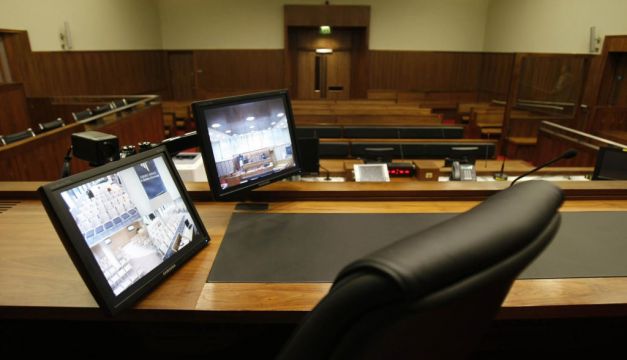A Rathkeale man who spent two years in jail for attacking a pensioner with a machete before his conviction was overturned due to the failure by gardaí to seek out CCTV footage cannot be seen to “lose twice” by paying his legal costs, his lawyers have argued.
At Limerick Circuit Criminal Court in November 2021, John O'Donoghue was convicted of assault causing serious harm to Willie O'Driscoll Snr, who was then aged 74, in Bothar Buí, Rathkeale, Co Limerick, on December 17th, 2017.
O’Donoghue (54), of Lower Main Street, Rathkeale, was also convicted of violent disorder on the same date and location during an incident between two families.
A jury unanimously convicted Mr O’Donoghue of assault causing serious harm and violent disorder, but found him not guilty of a charge of the production of an article, a machete, during the course of a dispute and of making threats to kill.
He had pleaded not guilty on all counts.
He was sentenced to 10 years in prison for assault causing serious harm and to a concurrent eight-year term for the violent disorder offence.
Mr O’Donoghue subsequently successfully appealed the conviction on the grounds that “vital” CCTV had not been harvested by gardaí and that a garda notebook had not been disclosed until the trial when the relevant garda was already giving evidence in the witness box.
Delivering the judgement last February, Ms Justice Tara Burns said the three-judge court upheld Mr O'Donoghue's complaint regarding the failure of trial judge Patrick Meghan to direct an acquittal.
She said this was on the basis of an unfairness arising in the investigation which deprived him of a "reasonable prospect of a defence".
Ms Justice Burns said it was an “established duty” of gardaí to seek out and preserve CCTV.
'Flawed'
At the Court of Appeal on Monday, Michael Bowman SC, for Mr O’Donoghue, argued that the appellant was entitled to costs both from his trial and his subsequent appeal.
He said that as a matter of “law and necessity”, Mr O’Donoghue was required to pursue an appeal to vindicate his right to a fair trial in a process that was “flawed from the investigation stage”.
“The defendant is not to bear the costs, quite literally, of the difficulties in the prosecution case,” he said.
The jury ultimately proceeded to convict the defendant, and he not only incurred the costs of the trial but also suffered a deprivation of his liberty until the matter could be further litigated before the Court of Appeal, Mr Bowman submitted.
The appellant “cannot be seen to lose twice” after he was put in the position where he had to appeal because “there were issues that started with the investigation process”, Mr Bowman said. “The appeal was absolutely necessitated,” he added.
He submitted that an inadequate investigation, combined with an outcome in which Mr O’Donoghue was entirely successful in respect of every count on the indictment, gives rise to an entitlement to costs, both of the trial and the appeal.
“Fundamentally, the judge was required as a function of his constitutional duty to ensure a fair trial, yet this did not happen.”
He submitted that refusing the application would be a “disproportionate” exercise in the court’s discretion and that the outcome of the appeal was the “most weighty factor” to be considered among the other discretionary factors identified in the jurisprudence.
Discretion
Lily Buckley BL, for the State, submitted that the Court of Appeal, after careful analysis, had overturned the decision of the trial judge made in the exercise of his discretion but this was “a far cry” from saying there should never have been a prosecution or that the respondent should not have sought to stand over the decision of the trial judge.
“It is a matter for this court whether the fact of there having been a unanimous jury verdict allows for the drawing of a reasonable inference that the defence case was rejected.
“Thereafter, it is a matter for the court whether this is of relevance in the exercise of its discretion on the costs.”
Ms Buckley said the jurisprudence of the Superior Courts establishes that in criminal matters, costs do not necessarily follow the event, but rather the jurisdiction to award costs is at the discretion of, in this instance, the Court of Appeal.
“It is respectfully submitted that the decision to initiate and maintain the prosecution and to stand over the conviction was entirely reasonable in the circumstances of the present case.”
“It is the director’s submissions that in the circumstances of this case that there should be no costs order made in regards to the trial below or in regards the appeal,” she said.
Ms Justice Isobel Kennedy, sitting with Ms Justice Una Ní Raifeartaigh and Ms Justice Burns, said the court would reserve judgement in the matter.







